mini::base is an STM32F103 MCU board with many auxiliary features, including a CAN transceiver with hardware filter and ESD protection, a microSD card slot, a 24 V power supply, an atmospheric sensor, USB Type-C support, and much more. Its compact, 54 x 42.5 mm form factor is designed to host one of our various expansion boards. We are making three such boards available through this campaign:
mini::out is a simple breakout board for the mini::base. It includes two 12-pin headers for IO access, a JTAG connector and a reset button for flashing the firmware, and a spring loaded clamp that provides CAN bus connectivity and up to 24 V of power. It also comes with a custom out::cable for connecting your mini::out to an ST-Link/V2 programmer (not included).
mini::grid is based around the SIMCOM SIM868, which supports GPS L1 C/A code and quad-band GSM connectivity. Antennas can be connected via U.FL connectors, and a nano-SIM-card slot is located on the back. A pair of Binder subminiature connectors carries power and data to and from mini::grid.
mini::pit is based around the ESP32-WROOM-U, which supports both WLAN 802.11 b/g/n and Bluetooth LE. It adds a second CAN bus with transceiver, filter, and ESD protection to the mini::base. A pair of Binder subminiature connectors carries power and data to and from mini::pit.
Development boards have been designed for many different purposes, but the vast majority of them started life as educational tools, as ways to showcase silicon, or as general-purpose "Swiss-army knives" for the maker scene. We love a lot of those boards—we have a lot of those boards—but but we’ve always ended up needing a CAN bus interface, a microSD card slot, the ability to run on 12 V power, and the peace-of-mind that comes from equipment that’s just a little bit harder to break. So that’s what we designed.
We believe that the dev-board sector is maturing, and that it’s time to start thinking in terms of product-ready boards. The bmc::board project was born to produce development tools appropriate for both field- and industrial-prototyping work. These boards were not designed to sit on a workbench. We ourselves have a habit of strapping them to vehicles, but…the qualities that make them suitable for our purposes translate quite nicely to other fields as well. Perhaps yours is one of them.
We believe in presenting high-quality implementations of thought-out solutions. We use USB Type-C where others still use Micro-USB. We use industrial-grade board-to-board connectors that are mechanically robust. We gave the mini::base a symmetric pinout so that expansion boards could be mounted in either orientation. The list goes on. When you hold our boards in your hand, you will immediately notice that that they are not toys. They are solidly engineered to help you do solid engineering.
Our commitment to quality is matched only by our commitment to open hardware—and to the communities that make the open-source movement so powerful. We have certified all board::mini products with OSHWA, and we vow to certify all future bmc::board products as well. We will publish our design documents for all of the projects we create for the open market. Always.
Our software, too, is open source. And it, too, will remain so. Every tool we develop is licensed as free software, either under the license used by the pre-existing code from which it was derived or—where we have a choice in the matter—under the MIT license. All docs, guides, and tutorials will be free and opens source as well.
As a sidenote, our company is split right down the middle between Linux users and Windows users, but those of us working on the board::mini project tend to be among the former, so you can count on Linux being a first-class citizen when it comes to toolchains and documentation.
More features, more innovation seems to be the name of the game these days. And don’t get us wrong, it’s fun to watch! We’re tech enthusiasts, and we feel lucky to be living through such exciting times. But we also feel compelled to challenge any mindset that frowns upon not reinventing the wheel. The wheel is fine; it’s the rest of the car that needs work.
One of our company mottoes is: "Disruptive is overrated; solid is what we strive for." We could have designed the circuitry of these boards from scratch, for example. But we decided that, as a customer, we would want maximum compatibility with existing ecosystems, so we chose to adopt existing circuits and adapt them to our needs. As a result, you can use board::mini with your favorite IDE, your favorite toolchains and libraries, and your favorite third-party software and tutorials.
mini::out comes with an out::cable, which can be used in combination with an ST-Link/V2 programmer (not included) to flash the bootloader. Here is the correct pinout for the programmer:
And here are links to common retailers:
| board::mini | Bluepill | Arduino Due | Adafruit Feather M0 | |
|---|---|---|---|---|
| Manufacturer | bmc::labs | vcc-gnd | Arduino | Adafruit |
| Microcontroller | STM32F103CBT6 | STM32F103C8T6 | AT91SAM3X8E | ATSAMD21G18 |
| Frequency | 72 MHz | 72 MHz | 84 MHz | 48 MHz |
| Flash memory | 128 kB | 64 kB | 512 kB | 256 kB |
| SRAM | 20 kB | 20 kB | 96 kB | 32 kB |
| Input voltage | 9-24 V | 5 V | 7-12 V | 5 V |
| Size | 54 x 42.5 mm | 53 x 22.5 mm | 101.52 x 53.3 mm | 51 x 23 mm |
| Auxiliaries | ||||
| Atmospheric sensor | MPL3115A2 | no | no | no |
| MicroSD card | yes | no | no | optional |
| CAN transceiver | SN65HVD | no | no | no |
| User LED | yes | yes | yes | yes |
| Expansion board features | ||||
| Bluetooth | with mini::pit | third party | with shield | optional |
| Wi-Fi | with mini::pit | third party | with shield | optional |
| GSM | with mini::grid | third party | third party | third party |
| GPS | with mini::grid | third party | third party | with Ultimate GPS |
| IOs | ||||
| USB | Type-C | micro | micro | micro |
| SPI | 2 | 2 | 4 | 6 |
| I²C | 1 | 2 | 2 | 6 |
| UART | 3 | 3 | 4 | 0 |
| ADC | 4 | 10 | 12 | 12 |
| CAN | 1 | 1 | 2 | 0 |
All four products in the board::mini series are certified by OSHWA, whose database includes profiles for mini::base, mini::out, mini::grid, and mini::pit. You can find our design files for those same four boards in the bmc::labs GitHub repository:
If you have questions, you can reach us through the Ask a technical question form on our campaign page.
Parts
All of the components we use are either broadly available or sourced from Würth Electronics, a local German producer with a well-deserved reputation for quality. Our products depend on very few components that fall in the middle, and we’ve identified reliable providers for those, as well.
PCB Fabrication & Assembly
We have trusted PCB fabrication and assembly partners in Germany, Italy, and China. While we currently plan to carry out our first production run in China, we have offers from our European partners as well, so—depending on demand—we can make a final decision at the last minute if necessary.
Final Testing, Bootloader Flashing, and Packaging
We have a small, in-house production line and a team of eight—both of which can be made available, on short notice if necessary, to work through these final few steps.
Once the boards are manufactured and tested, we will send them from Munich, Germany to Crowd Supply’s facility in the United States for final delivery to backers. Mouser Electronics is handling the shipping. Each unit will be protected by a sealed ESD bag and a sturdy cardboard box. We expect to begin shipping by the middle of August, 2021. Please see Crowd Supply’s guide for more information about ordering, paying, and shipping.
Parts
Component availability can be tricky. We believe the risk here is low, but there is always some possibility that lead times will break the schedule. We have identified alternatives for some components, but swapping out most key components would require a re-design. We will attempt to "pre-load" our manufacturer with information, during the campaign, so they can pre-order critical parts if necessary.
PCB Fabrication & Assembly
Known risks when manufacturing in China include Chinese holidays and shipping delays. We have experience both in the past, but not to a worrying degree (though of course the pandemic isn’t helping matters). Should we encounter major challenges—such as significant shipping delays and/our quality-control issues—we will activate alternative providers.
Final Testing, Bootloader Flashing, and Packaging
Setting up the production line is going to be an interesting challenge for us, as we’ve done it only a few times before and never at the scale of "several hundred units". That said, we believe we are preparing well by sorting out as many of the peripheral details as possible, in advance, while remaining flexible enough to deal with any situation that might arise.
Other Risks & Challenges
While we’d prefer to deliver a front-end experience that’s just as polished as our hardware, some of our custom software is not yet as far along as we’d like it to be. Considering the wide availability of compatible software packages, however, we do not believe this detracts from the utility of the board::mini ecosystem. We’ve recently allocated additional resources to the project and are pushing hard to ensure that our software and our documentation—including our showcase projects and our sample code—make rapid progress over the coming months.
"Connecting to a vehicle's CAN bus can open up a world of hacking possibilities. The team at bmc::labs noticed that existing tools had a generic feel to them. Starting from scratch, they are introducing board::mini..."
"bmc::labs presenta la placa compacta mini::base, basada en el microcontrolador STM32F103 y, por lo tanto, compatible con el estándar STM32, la cual dispone de múltiples funcionalidades auxiliares, dirigida al mercado automotriz."
Produced by bmc::labs in Munich, Germany.
Sold and shipped by Crowd Supply.
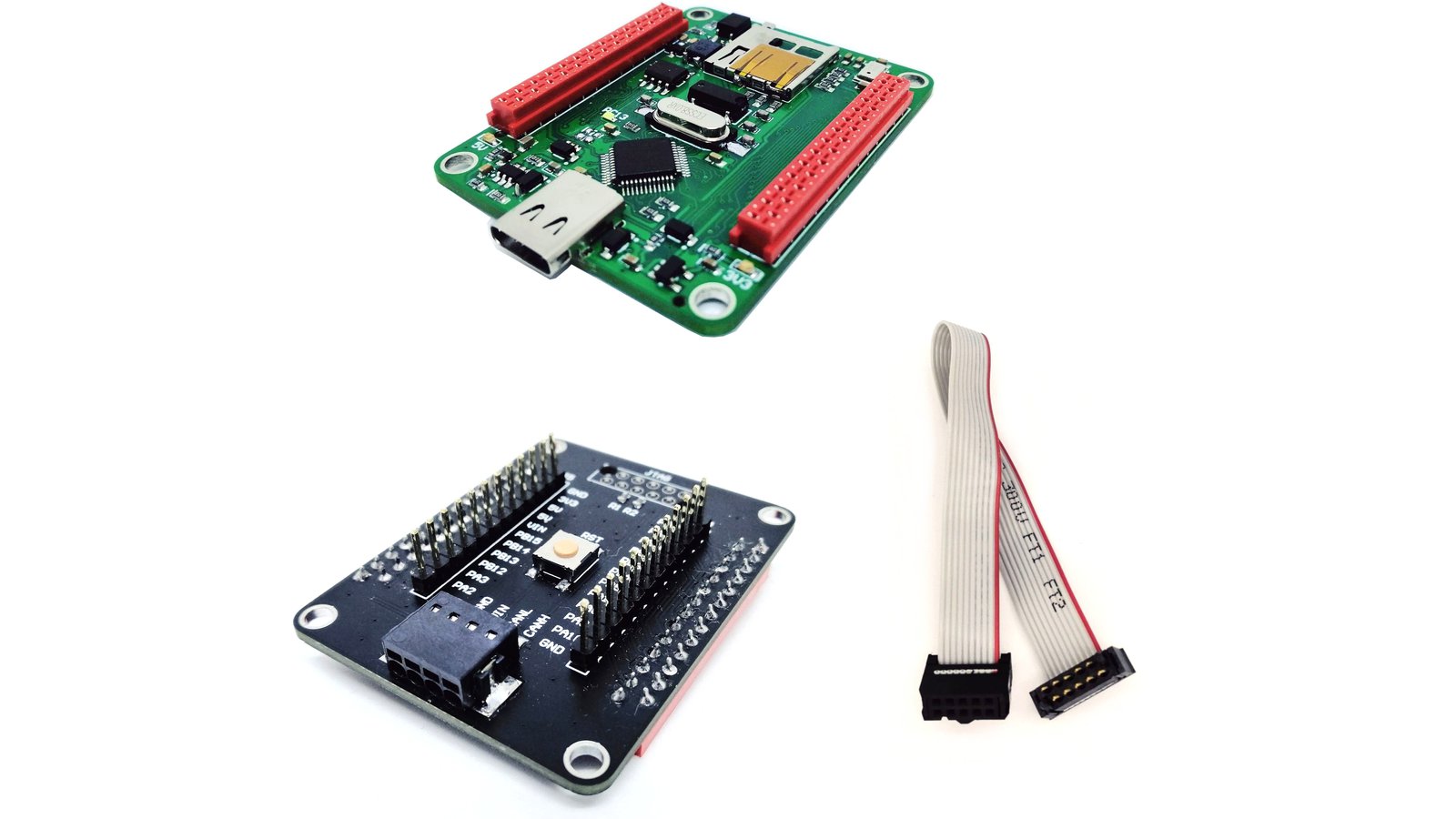
Everything you need to get started with the board::mini ecosystem, including one mini::base, one mini::out breakout board, and one out::cable for connecting the latter to an ST-Link/V2 adapter (not included).
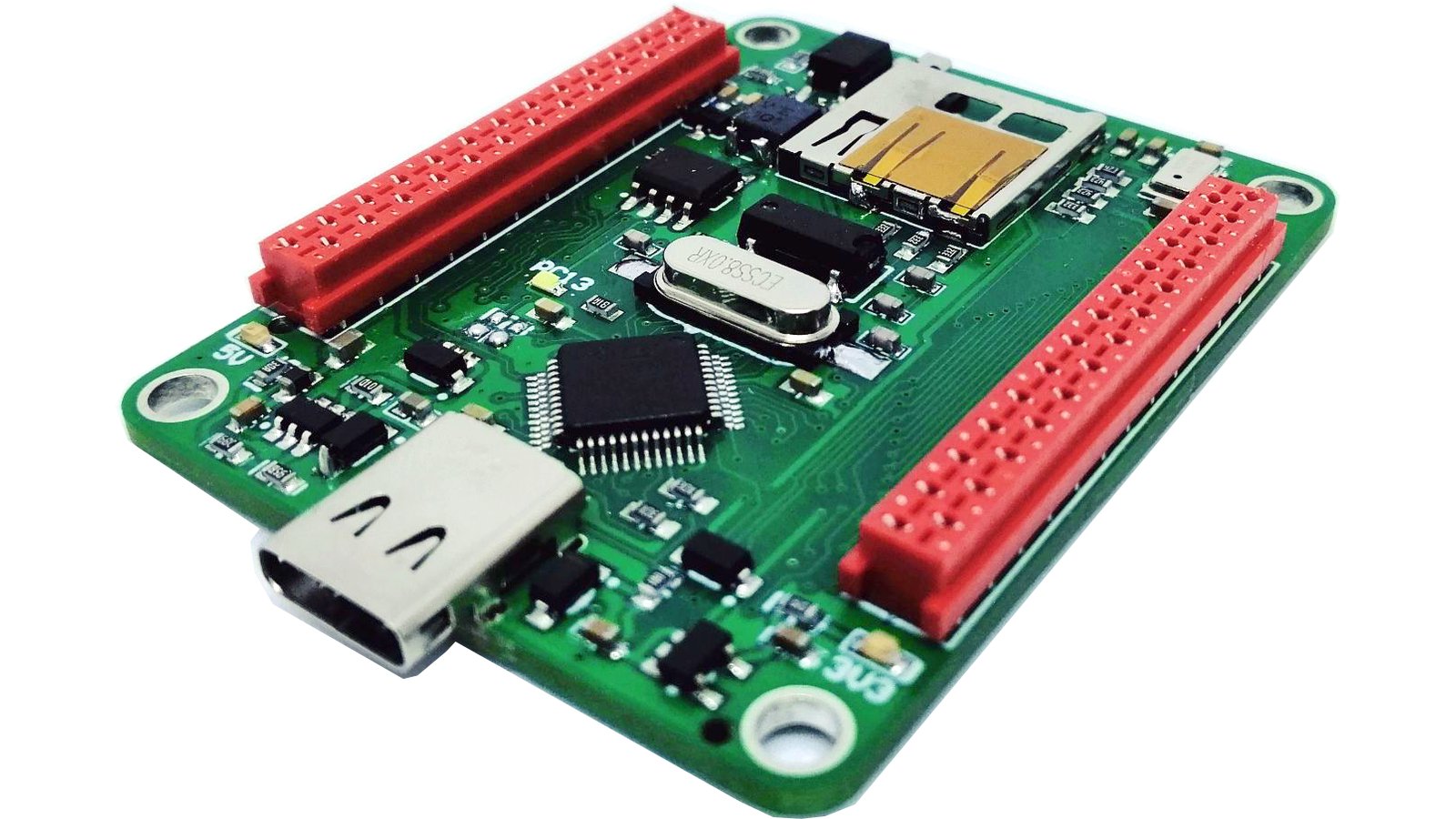
An STM32F103 microcontroller board featuring a CAN transceiver with a hardware filter and ESD protection, a microSD card slot, a 24 V power supply, an atmospheric conditions sensor, a USB Type-C port, and much more. Ready to be combined with one of our expansion boards.
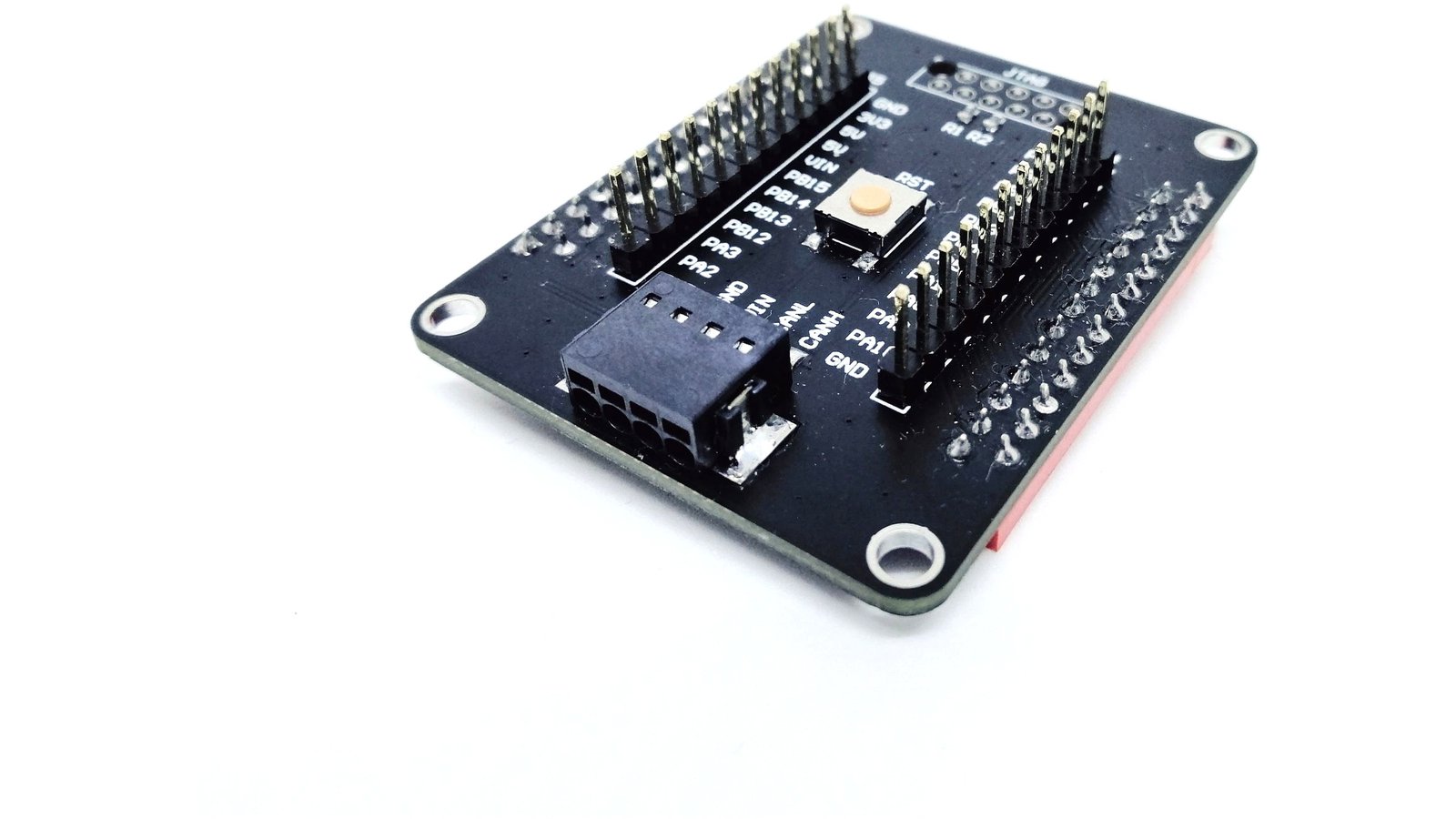
A simple breakout board for the mini::base. It includes two 12-pin headers for IO access, a JTAG connector and a reset button for flashing the firmware, and a spring loaded clamp that provides CAN bus connectivity and up to 24 V of power. Comes with a custom out::cable programming cable for connecting your mini::out to an ST-Link/V2 adapter (not included).
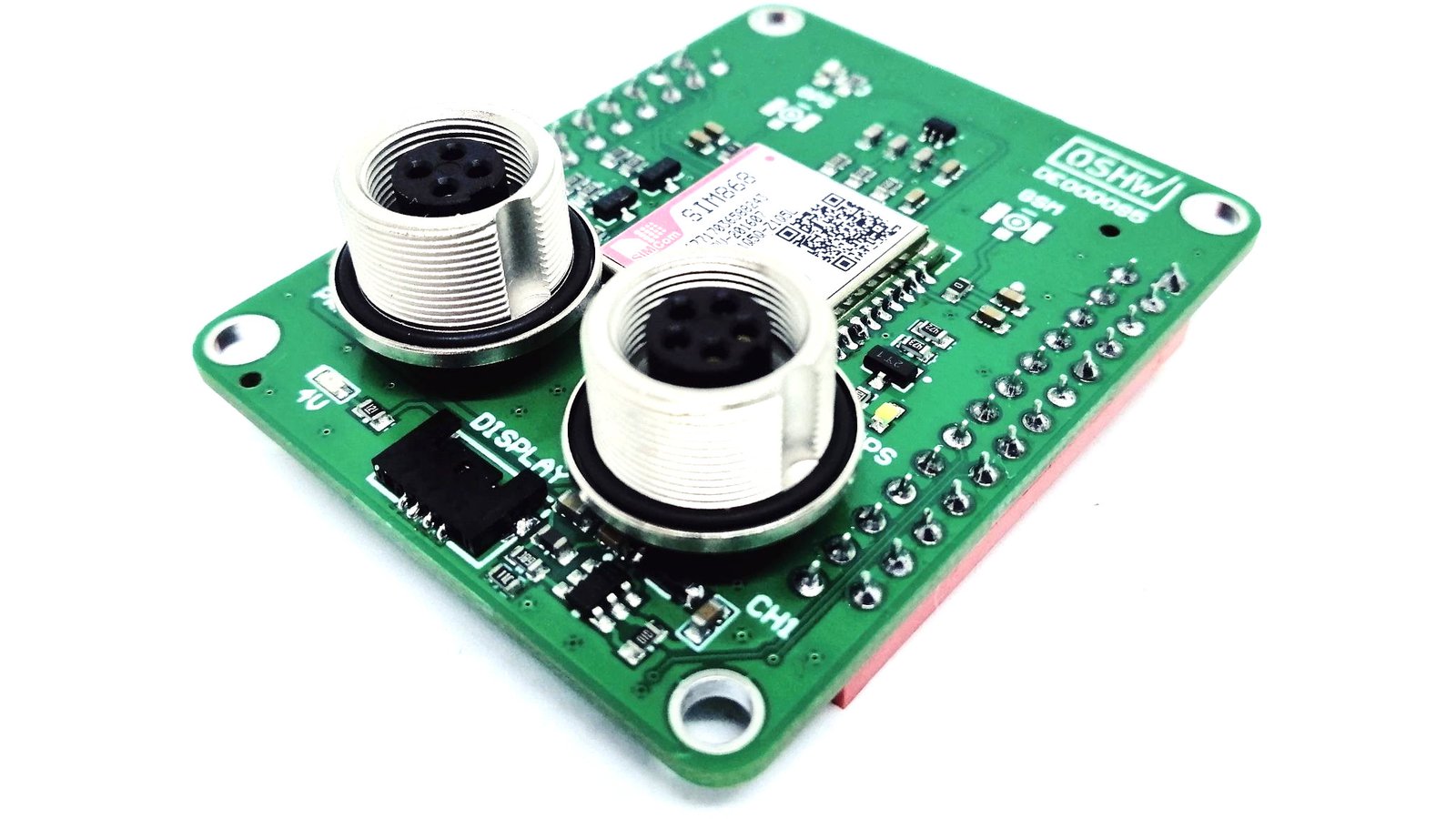
Supports GPS L1 C/A code and quad-band GSM connectivity. Antennas can be connected via U.FL connectors, and a nano-SIM-card slot is located on the back. A pair of Binder subminiature connectors carries power and data to and from mini::grid.
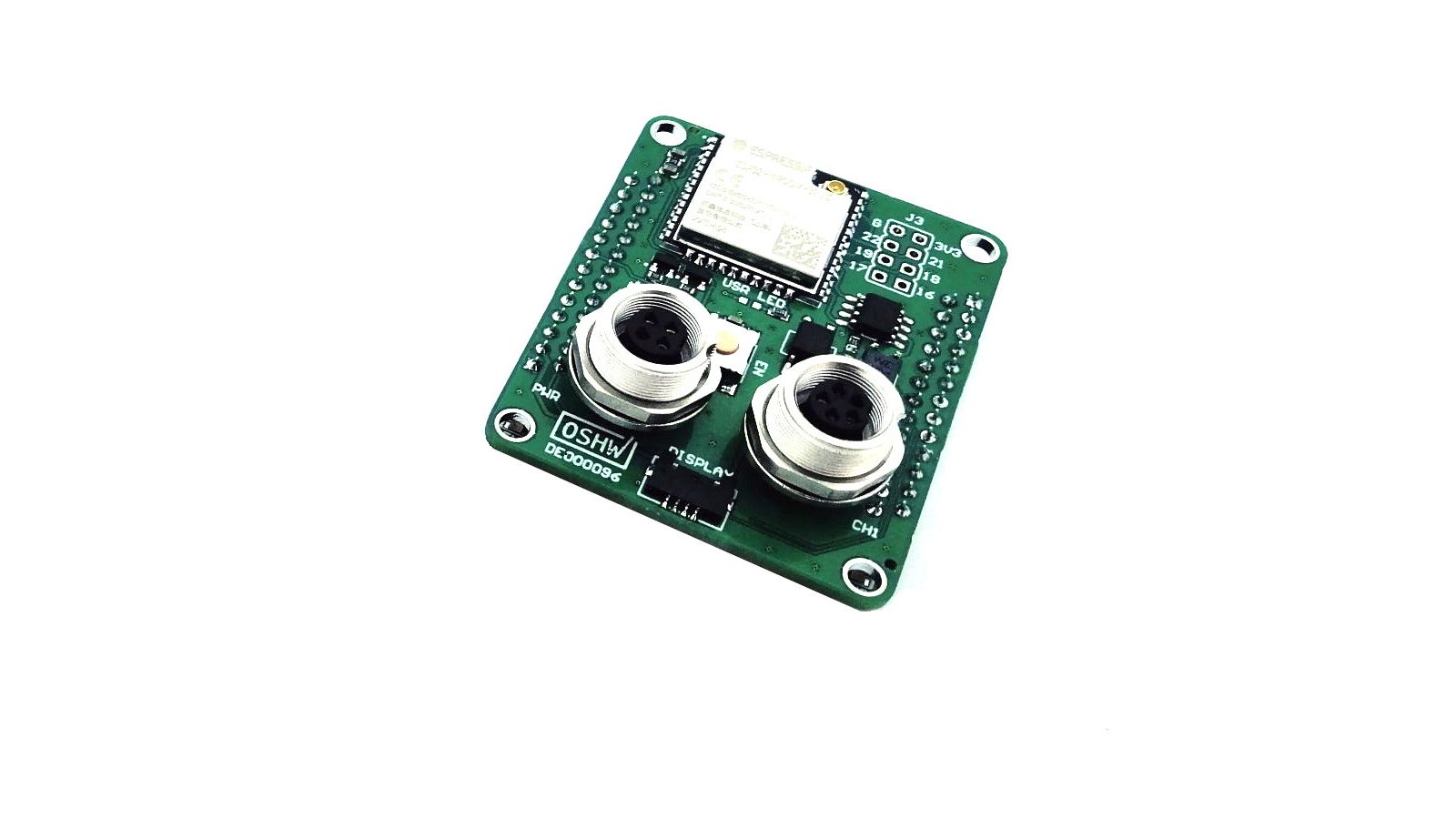
Based around the ESP32-WROOM-U, which supports both WLAN 802.11 b/g/n and Bluetooth LE, base::pit also adds a second CAN bus with transceiver, filter, and ESD protection. A pair of Binder subminiature connectors carries power and data to and from mini::pit.

Everything you need to get started with the board::mini ecosystem, including one mini::base, one mini::out breakout board, and one out::cable for connecting the latter to an ST-Link/V2 adapter (not included).

An STM32F103 microcontroller board featuring a CAN transceiver with a hardware filter and ESD protection, a microSD card slot, a 24 V power supply, an atmospheric conditions sensor, a USB Type-C port, and much more. Ready to be combined with one of our expansion boards.

Supports GPS L1 C/A code and quad-band GSM connectivity. Antennas can be connected via U.FL connectors, and a nano-SIM-card slot is located on the back. A pair of Binder subminiature connectors carries power and data to and from mini::grid.

Based around the ESP32-WROOM-U, which supports both WLAN 802.11 b/g/n and Bluetooth LE, base::pit also adds a second CAN bus with transceiver, filter, and ESD protection. A pair of Binder subminiature connectors carries power and data to and from mini::pit.